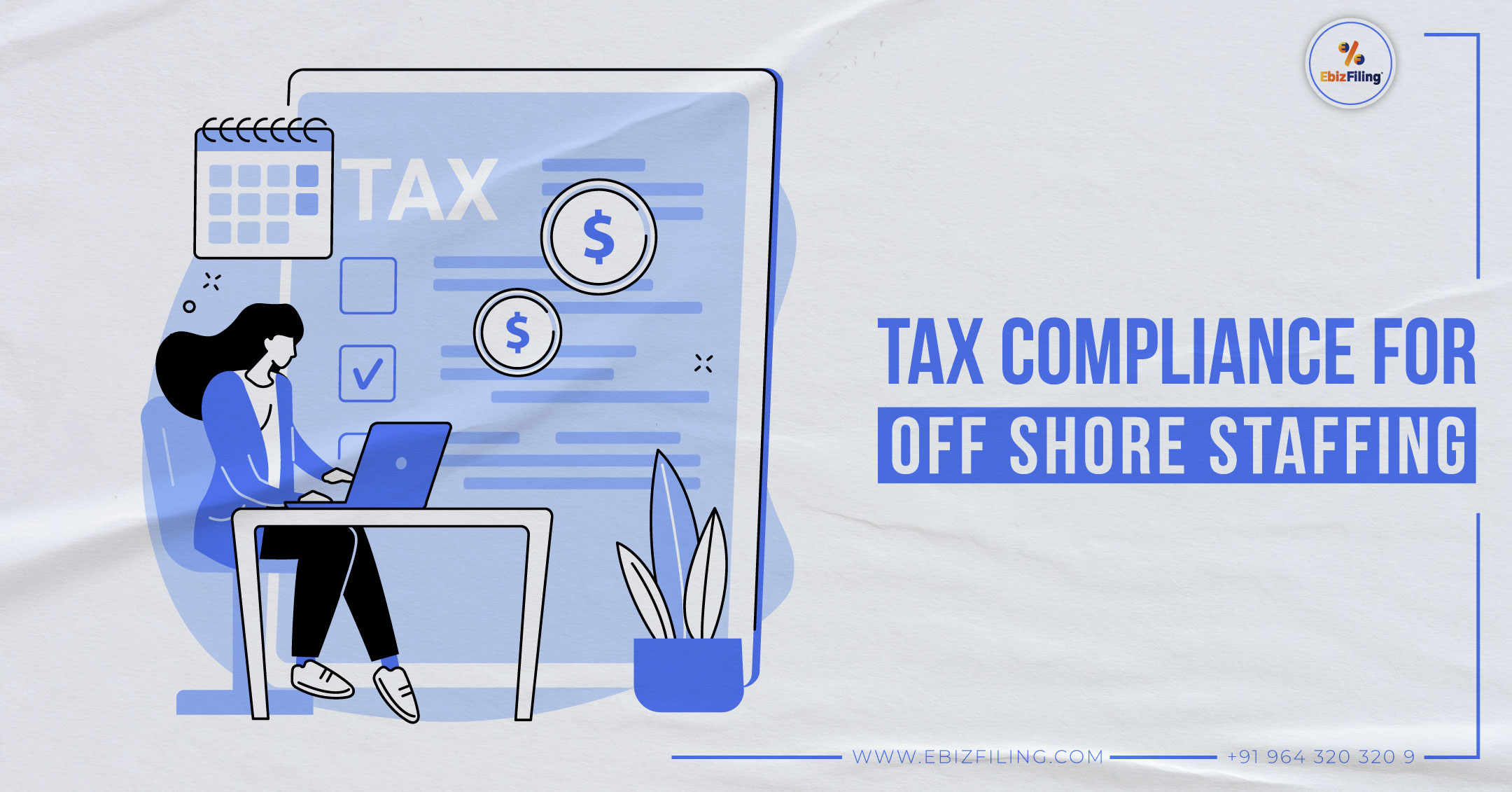
-
July 15, 2025
Tax compliance for Offshore Staffing
What is the tax compliance for offshore staffing?
Introduction
Offshore staffing also known as outsourcing or offshoring, has become a popular business strategy for companies looking to reduce labour costs and gain access to specialized expertise. However, when it comes to tax compliance for offshore staffing, things can become complicated. In this blog, we will discuss what tax compliance for offshore staffing entails and why it’s essential for businesses to stay compliant.
What is offshore staffing?
Offshore staffing refers to the practice of hiring employees or contractors from other countries to work for your business. These workers are generally located in countries with lower labour costs, such as India, the Philippines, or Mexico. Offshore staffing in India allows companies to access specialized skills and expertise that may not be available locally, while also reducing labour costs.
What is tax compliance?
Tax compliance refers to the process of following the rules and regulations set by the government when it comes to paying taxes. Tax compliance is essential for businesses because failure to comply with it can result in hefty fines, legal action, and damage to the company’s reputation.
Tax compliance for offshore staffing
When it comes to tax compliance for offshore staffing in India, there are several things that businesses need to keep in mind. The first is that they will need to comply with both local and International laws. This means that businesses will need to understand the tax laws in the country and make some popular business strategies, where the offshore workers are located, as well as the tax laws in their home country.
One of the most important things to consider when it comes to tax compliance for offshore staffing is the issue of double taxation. Double taxation occurs when the same income is taxed twice, once in the country where the income is earned and again in the country where the business is located. To avoid double taxation, businesses will need to ensure that they are following the appropriate tax treaties and agreements between the two countries. Companies must consider several factors while offshore staffing, including:
-
Tax Laws: Each country has its tax laws that businesses must comply with while hiring offshore staff. It is essential to understand the tax laws of the country where the offshore staff is located, as well as the tax laws of the company’s home country.
-
Payroll Taxes: Companies must ensure that payroll taxes are paid for offshore staff. This includes Social Security, Medicare, and unemployment taxes. In some cases, the company may be required to withhold taxes from the offshore staff’s wages.
-
Income Taxes: Offshore staff must also pay income taxes in their home country. Companies must ensure that the offshore staff receives the appropriate documentation to report their income and pay taxes.
-
Tax Treaties: Many countries have tax treaties with each other that govern how taxes are paid on income earned in each country. Companies must understand these tax treaties to ensure that they are complying with the relevant tax laws.
-
Record-Keeping: Companies must keep accurate records of all transactions related to offshore staffing, including payments to the offshore staff and taxes paid. These records will be necessary for tax reporting and compliance purposes.
-
Compliance with Local Laws: Companies must also comply with local laws in the country where the offshore staff is located. This may include employment laws, immigration laws, and tax laws.
How Tax Compliance for Offshore Staffing Can Affect Businesses?
Non-compliance with tax laws for offshore staffing can have significant consequences for businesses. These consequences include:
-
Penalties and Fines: If a company fails to comply with tax laws for offshore staffing, it may be subject to penalties and fines. These penalties can be significant, depending on the severity of the violation.
-
Legal Action: If a company is found to be in violation of tax laws for offshore staffing, it may face legal action. This can include lawsuits, fines, and even criminal charges in some cases.
-
Reputational Damage: Non-compliance with tax laws for offshore staffing can damage a company’s reputation. This can make it more challenging to attract and retain clients and employees.
-
Financial Losses: Non-compliance with tax laws for offshore staffing can result in significant financial losses for a company. This can include fines, legal fees, and lost revenue from clients who are unwilling to work with a non-compliant company.
Conclusion
In conclusion, tax compliance for offshore staffing is critical for businesses that engage in this practice. It is essential to understand the tax laws and follow the popular business strategies of the country where the offshore staff is located, as well as the tax laws of the company’s home country. Companies must ensure that payroll and income taxes are paid for offshore staff, comply with tax treaties, keep accurate records, and comply with local laws. Failure to comply with tax laws for offshore staffing in India can result in penalties, legal action, reputational damage, and financial losses. By understanding and complying with tax laws, businesses can benefit from offshore staffing while minimizing the risks.
Get the best of Offshore Staffing Services in India
Get started with Ebizfiling’s Offshore Staffing Services. Prices Starts at INR 24999/- only.
About Ebizfiling -










Reviews
Ankit Agarwal
08 Jun 2018it was pleasure doing business with you....
Forum Shah
21 Mar 2018Their services are not up to the mark. Too much of email correspondence. I was disappointed as my preferences were to correspond over chat.
Kunal Undirwade
04 Apr 2022I registered my company from Ebizfilling. I have had a great experience with them. Their services and work are very beautiful and understandable to everyone. At first I thought that these people would work or not and I was skeptical about how they would work properly. But here I was very much assisted by Divya Gehlot and Madam Sejal. I am very happy with the service / help provided by them and I wish them success in their endeavors. Also my best wishes to the entire Ebizfilling team
February 20, 2026 By Bhakti S
Top 10 CS Firms in India – 2026 updated list Introduction Company Secretary firms play an important role by helping businesses manage professional compliance and regulatory requirements. Without proper CS support, companies may struggle to meet statutory obligations under […]
February 19, 2026 By Bhakti S
Why Accuracy Matters When Submitting Business Formation Documents? Introduction When creating a business, even small errors in the formation documents can lead to legal, financial, and operational risks later. Taking time to ensure accuracy helps protect your company’s status […]
February 14, 2026 By Dhruvi D
Delegrace Marks Milestone by Saving Over 10,000 Hours for Clients in the First Year Ahmedabad, India, January2026 In its first year of operations, Delegrace has achieved a milestone that reflects both its dedication and the trust placed by its […]